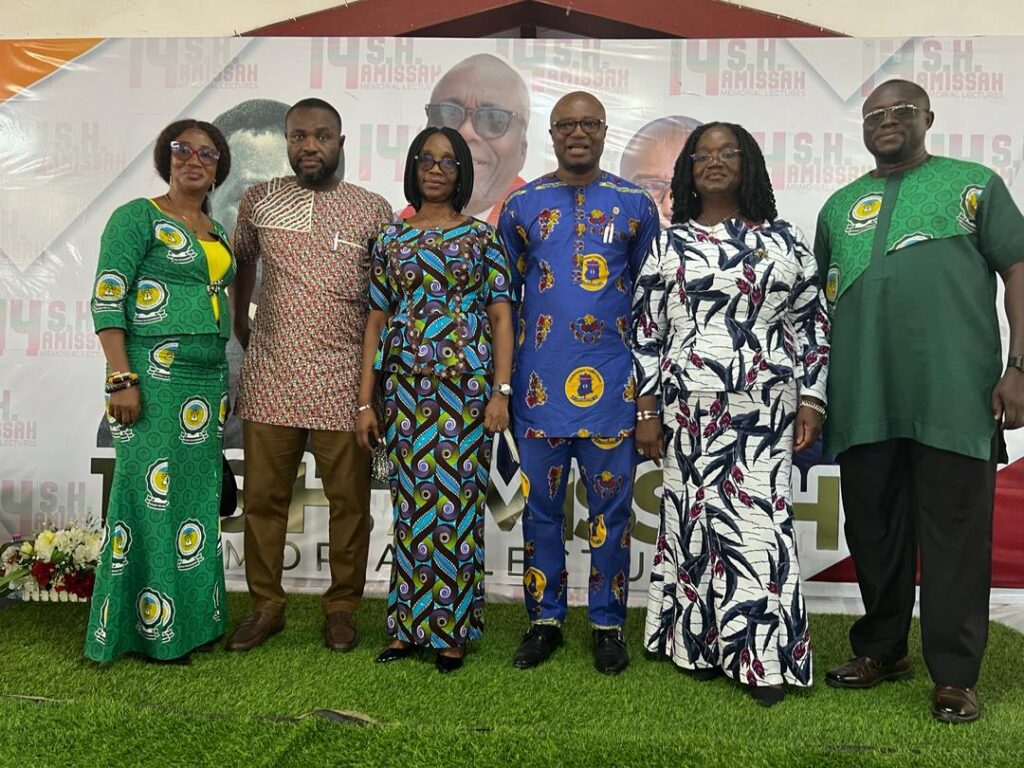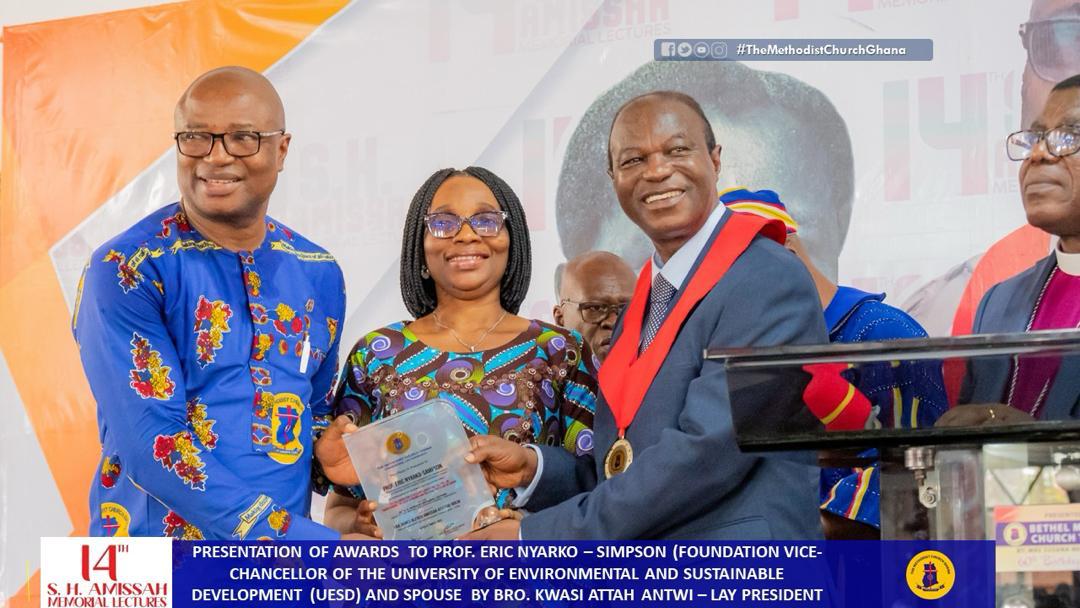The Vice-Chancellor of the University of Environment and Sustainable Development (UESD, Prof. Eric Nyarko-Sampson has called for enhanced collaboration between the State and religious bodies in theSocio-Economic and Political structure of Ghana.Such joint efforts he said, should be extended to community development projects focusing on infrastructure, sanitation, and environmental conservation.
Prof. Nyarko-Sampson was delivering an address as the Guest Speaker at the 14th S.H. Amissah Memorial Lectures at the Bethel Methodist Society in Takoradi held on 09/3/2024. He was accompanied by his spouse, Margaret. The lecture was attended by the Presiding Bishop of the Methodist Church, Most Rev. Dr. Paul Kwabena Boafo, Wesleyans from all over the country, and a team from UESD including the Registrar, Mrs Mary Abena Agyepong.
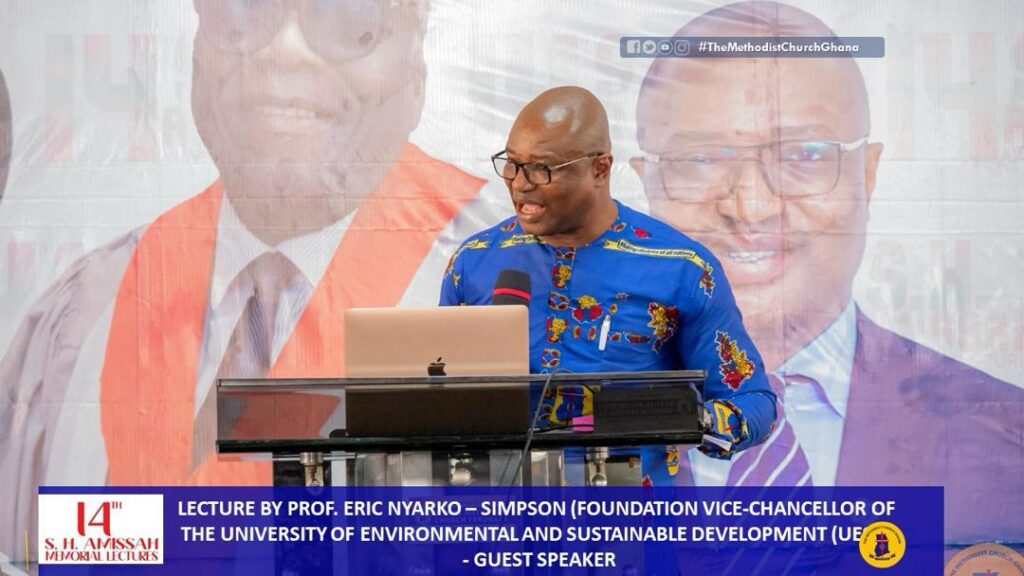
Prof. Nyarko-Sampson spoke on: The Collaboration of Religious Bodies and the State in Transforming the Socio-Economic and Political Structure of Ghana, which he emphasized ’is key and worth discussing as long as one of the parties has a charge to keep whilst the other must take that charge.’
He said, Ghana is a circular state, and all citizens are at liberty to enjoy their freedom to believe and manifest the religions of their faith. The involvement of religious bodies in state affairs is not a new phenomenon and has a long historical context and there is proof of this coexistence.
Prof. Nyarko-Sampson touted the significant influence of religious organisations in the socioeconomic changes across the country, particularly in the field of education, where they have been instrumental in founding and running schools, raising literacy rates, and developing a workforce with the necessary skills.
He continued that, religious bodies have also played an important part in healthcare, youth development, humanitarian and relief activities, and Governance in addition to providing professional, advisory, and spiritual guidance to the state.
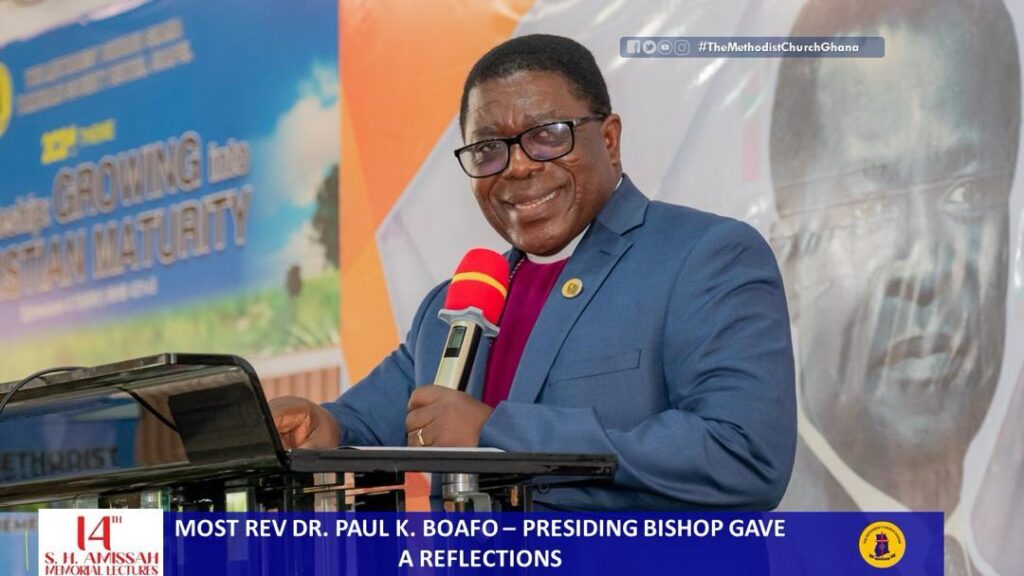
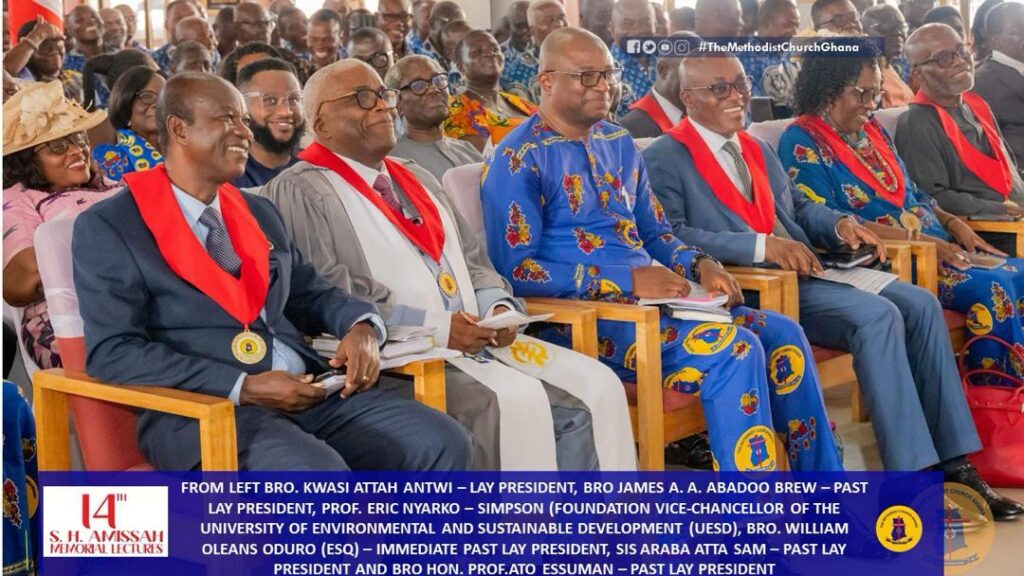
Furthermore, religious organisations have shaped moral and ethical education, influencing values that advance the general well-being of people and society. The renowned educationist praised religious organisations for their active involvement in creating and running healthcare facilities, improving patient access, and funding public health programmes.
Additionally, religious organisations have had a significant influence on community development by helping to reduce poverty and providing support to vulnerable populations through schemes like orphanages, shelters for internally placed individuals, and community support services. Religious organisations were included on the list of important organisations in charge of directing the creation of the curriculum and one of Ghana’s secondary school curricula.
The foundation Vice-Chancellor of UESD said, even though the Constitution prohibits the formation of political parties along religious lines, the establishment of educational institutions and other initiatives by religious bodies are encouraged because the government has come to accept the position that the state alone cannot satisfy the needs of the country
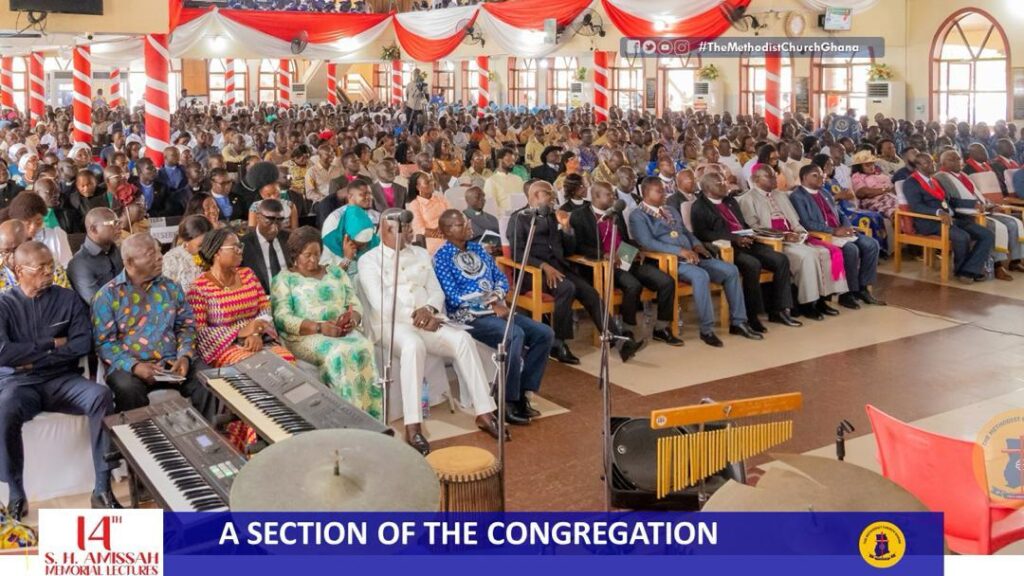
This symbiotic relationship between Religious Bodies and the State he stated has seen a lot of collaborations, and still holds immense potential for the socio-economic and political transformation of Ghana.
He concluded that, it is evident that the state and the religious bodies are bedfellows. Therefore, they have a responsibility to ensure that the state is run in a way to promote the growth and development of its members.
The Ministry of Environment, Science, Technology, and Innovation (MESTI) has awarded a grant of five hundred thousand cedis (500,000) to five lecturers from the University of Environment and Sustainable Development (UESD) and one from the Mt. Mary College of Education, Somanya in the Eastern Region.
Prof. Nyarko-Sampson was presented a citation for his presentation.
